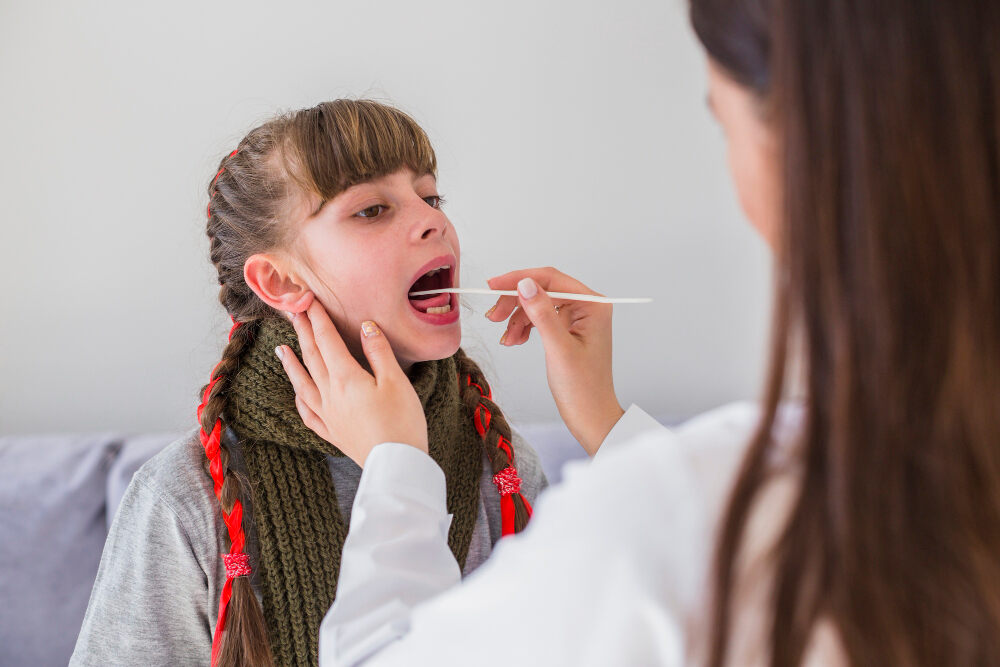In the intricate landscape of children’s well-being, the intersection of asthma and dental risks emerges as a significant yet often overlooked facet. The correlation between these two elements becomes particularly pronounced when considering that Asthmatic Kids Are At Higher Dental Risks. This article delves into the dynamic relationship between these two aspects, aiming to unravel the complexities and raise awareness about the heightened dental risks faced by asthmatic kids.
As we embark on this exploration, it becomes evident that the management of asthma, a prevalent respiratory condition among children, introduces unique challenges that extend beyond respiratory symptoms. The introduction sets the stage for an insightful journey, emphasizing the importance of understanding how asthma medications, breathing techniques, and associated factors contribute to an increased susceptibility to dental issues in this vulnerable demographic.
Understanding the Link Between Asthma and Dental Risks
Asthma is a chronic respiratory condition that affects millions of children worldwide, and recent research suggests a notable correlation between asthma and heightened dental risks in pediatric patients. The link between asthma and oral health stems from various factors associated with the condition, including the use of inhalers and the potential side effects of medication. Children with asthma often rely on inhalers, which may contain sugars or acidic components that can contribute to dental issues such as tooth decay and enamel erosion.

Furthermore, the breathing difficulties experienced by asthmatic children may lead to mouth breathing, resulting in reduced saliva production and an increased susceptibility to oral problems. Understanding this connection between asthma and dental risks is crucial for both healthcare providers and parents, as it emphasizes the importance of proactive dental care for asthmatic children. Implementing preventive measures, such as regular dental check-ups, proper oral hygiene practices, and monitoring medication side effects, can significantly mitigate the potential adverse impact of asthma on a child’s dental health.
Common Dental Problems in Asthmatic Kids
Asthmatic children face an elevated risk of dental issues, shedding light on the intersection between respiratory health and oral well-being. One prevalent problem is the association between asthma inhalers and dry mouth, a condition known as xerostomia. The medications within these inhalers can diminish saliva production, creating an oral environment conducive to bacterial growth and, subsequently, an increased susceptibility to cavities and tooth decay.
Furthermore, the tendency for asthmatic children to breathe through their mouths can exacerbate problems, contributing to a higher incidence of gingivitis and other gum-related concerns. It is crucial for caregivers and healthcare providers to be cognizant of these potential dental challenges and to emphasize preventative measures, including regular dental check-ups and meticulous oral hygiene practices, to ensure comprehensive health management for asthmatic children.
Preventive Measures for Dental Health in Asthmatic Kids
In light of the heightened dental risks faced by asthmatic children, implementing preventive measures is crucial to safeguard their oral health. Firstly, regular dental check-ups are paramount, allowing for early detection and management of potential issues. Dentists can provide tailored advice on maintaining oral hygiene, emphasizing the importance of consistent brushing and flossing routines. Asthmatic children should rinse their mouths with water after using inhalers to counteract dry mouth effects.

Additionally, incorporating fluoride treatments and dental sealants can offer an extra layer of protection against cavities. Parents and caregivers play a pivotal role in promoting healthy habits, encouraging a well-balanced diet low in sugary foods and beverages. Moreover, fostering open communication between healthcare providers, parents, and dental professionals ensures a comprehensive approach to the overall well-being of asthmatic children, addressing both respiratory and dental concerns simultaneously.
Dietary Recommendations for Asthmatic Kids
Given the elevated dental risks faced by asthmatic children, careful attention to their dietary choices is crucial for maintaining optimal oral health. Asthma medications, particularly corticosteroids, can have implications for dental health, emphasizing the importance of a well-balanced diet. To support strong teeth and bones, it is advisable for asthmatic kids to include calcium and vitamin D-rich foods in their meals, such as dairy products, leafy greens, and fortified cereals. Incorporating antioxidant-rich fruits and vegetables, including apples, carrots, and berries, can contribute to gum health.
Equally significant is the moderation of sugary snacks and beverages, as these can exacerbate the risk of dental problems. Consulting with healthcare professionals and nutritionists to tailor dietary recommendations to the unique needs of asthmatic children ensures a comprehensive approach to health that addresses both their respiratory and dental well-being. By promoting a nutrient-rich and balanced diet, parents and caregivers can play a pivotal role in safeguarding the oral health of asthmatic kids.
Incorporating Oral Care into Asthma Management
Integrating comprehensive oral care into the management of asthma is paramount to safeguard the dental health of children grappling with this respiratory condition. Asthmatic kids often face an increased risk of dental problems, such as dry mouth and a higher susceptibility to cavities. Therefore, a holistic approach that includes regular oral hygiene practices is vital. Healthcare providers and parents should collaborate to educate asthmatic children on the importance of consistent brushing, flossing, and rinsing. Dentists can play a pivotal role by monitoring the oral health of asthmatic kids during routine check-ups and providing tailored advice.
Moreover, it is crucial to address the potential side effects of asthma medications, such as reduced saliva production, by promoting adequate hydration and incorporating saliva-stimulating products. By actively incorporating oral care measures into asthma management strategies, we can strive to mitigate the dental risks associated with this chronic respiratory condition and enhance the overall well-being of asthmatic children.
Addressing Oral Hygiene Challenges in Asthmatic Kids
Effectively addressing oral hygiene challenges in asthmatic kids is paramount to mitigate the increased dental risks associated with their condition. One major hurdle stems from the use of inhalers, which can lead to dry mouth, creating an environment conducive to dental issues. Dentists recommend establishing a meticulous oral care routine that includes regular brushing with fluoride toothpaste, flossing, and incorporating an alcohol-free mouthwash to combat dry mouth. It’s essential for parents and caregivers to monitor and assist younger children in maintaining these habits.
Dental professionals may suggest the use of sugar-free gum or candies to stimulate saliva production, helping to counteract the dryness caused by asthma medications. Furthermore, regular dental check-ups are crucial for early detection and intervention. Education and open communication between healthcare providers, parents, and children can empower young asthmatics to prioritize their oral health, fostering a proactive approach to address the unique oral hygiene challenges associated with asthma.
Promoting Healthy Habits for Asthmatic Kids
Ensuring the well-being of asthmatic children extends beyond medical management to include the promotion of healthy habits that safeguard both their respiratory and dental health. One fundamental practice is maintaining consistent oral hygiene routines. Encouraging asthmatic kids to brush their teeth at least twice daily with fluoride toothpaste and emphasizing the importance of regular flossing can significantly reduce the risk of dental issues associated with asthma medications.
Moreover, fostering hydration is crucial, as adequate water intake helps counteract dry mouth resulting from the use of inhalers. Parents and caregivers should work collaboratively with healthcare professionals to establish an asthma management plan that considers the potential impact on oral health. Routine dental check-ups play a pivotal role in early detection and intervention. Educating both children and their caretakers about the interplay between asthma and dental health empowers them to make informed choices, promoting a holistic approach to the well-being of asthmatic children.
The Psychological Aspect of Dental Health for Asthmatic Kids
The dental risks faced by asthmatic children extend beyond the physical realm, delving into the psychological aspects of their well-being. Managing asthma often involves a routine that includes medications, inhalers, and frequent medical appointments. This routine, coupled with potential dental issues, can create anxiety and stress for asthmatic kids. The fear of dental procedures, coupled with concerns about the impact of asthma medications on oral health, can lead to reluctance in seeking necessary dental care.
It is crucial for healthcare providers and parents to recognize and address the psychological aspects of dental health in asthmatic children. Open communication, education about the importance of oral hygiene, and creating a supportive environment during dental visits can help alleviate anxiety. Moreover, fostering a positive attitude towards dental care from an early age can contribute to the overall well-being of asthmatic children, promoting both physical and mental health.
Find more info about:
Wrap-up
In conclusion, Asthmatic Kids Are At Higher Dental Risks highlights the critical connection between asthma and heightened dental vulnerabilities in children, emphasizing the necessity for comprehensive care that concurrently addresses both respiratory and oral health. Asthmatic kids, due to the nature of their condition and the use of inhalers, are more prone to dental problems such as dry mouth and a higher susceptibility to cavities. Recognizing these challenges emphasizes the need for proactive measures, including regular dental check-ups, meticulous oral hygiene practices, and dietary considerations.

